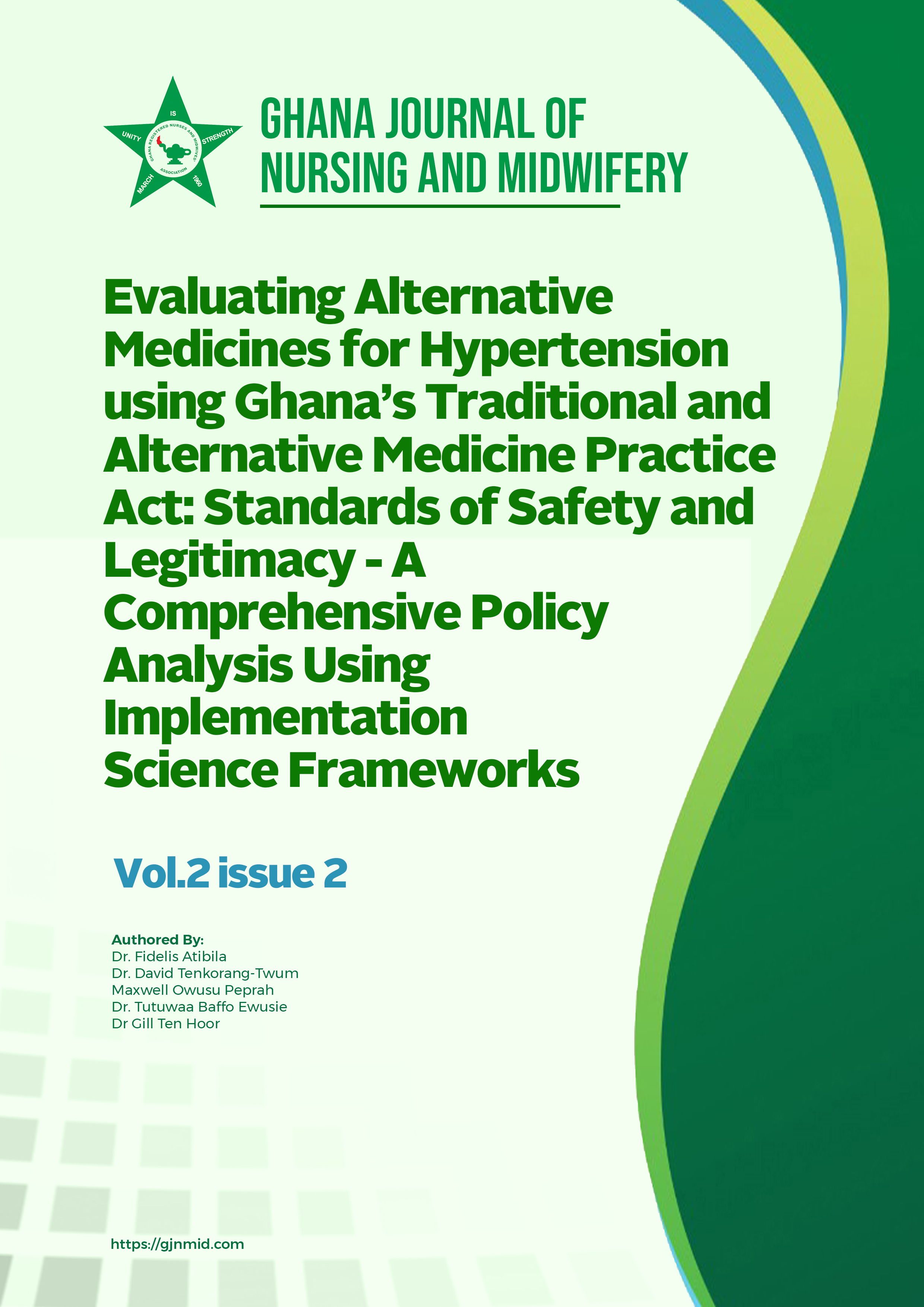Evaluating Alternative Medicines for Hypertension using Ghana’s Traditional and Alternative Medicine Practice Act: Standards of Safety and Legitimacy - A Comprehensive Policy Analysis Using Implementation Science Frameworks
Main Article Content
Abstract
This comprehensive analysis employs implementation science frameworks to evaluate gaps in Ghana’s Traditional and Alternative Medicine Practice Act 575 concerning clinical efficacy evidence standards for integration, compared to global benchmarks and stakeholder perspectives. A systematic policy analysis combining the Consolidated Framework for Implementation Research (CFIR), Exploration-Preparation-Implementation-Sustainment (EPIS) frameworks, and SEIPS-CRuPAC approach was conducted. Data sources included recent peer-reviewed literature (2020-2024), policy documents, stakeholder reports, and implementation assessments through systematic database searches and stakeholder analysis. Act 575 demonstrates comprehensive safety regulatory frameworks but significant gaps in mandated clinical efficacy evaluation requirements. Recent stakeholder studies (2021-2024) reveal persistent barriers including regulatory costs (GHC 60 vs GHC 20 for comparable treatments), limited approved traditional medicine products, and poor interprofessional collaboration. Implementation science analysis identifies critical gaps in outer context factors (policy support), inner context factors (organizational readiness), and bridging factors (evidence generation capacity). Ghana’s pioneering traditional medicine legislation requires strategic amendments incorporating evidence-based efficacy evaluation requirements, enhanced stakeholder engagement mechanisms, and strengthened implementation capacity to achieve WHO integration goals by 2030. Multi-level interventions including policy amendments mandating phased clinical trials, establishment of collaborative research platforms, dedicated funding mechanisms, and harmonization with international standards through implementation science-guided approaches.
This study provides the first systematic implementation science-informed evaluation of African traditional medicine policy, offering replicable methodology for policy strengthening across similar contexts and direct relevance to Ghana’s 2024-2030 Strategic Plan for Traditional Medicine Development.
Downloads
Article Details

This work is licensed under a Creative Commons Attribution 4.0 International License.
Copyright (c) 2024
This work is licensed under a Creative Commons Attribution 4.0 International License.






